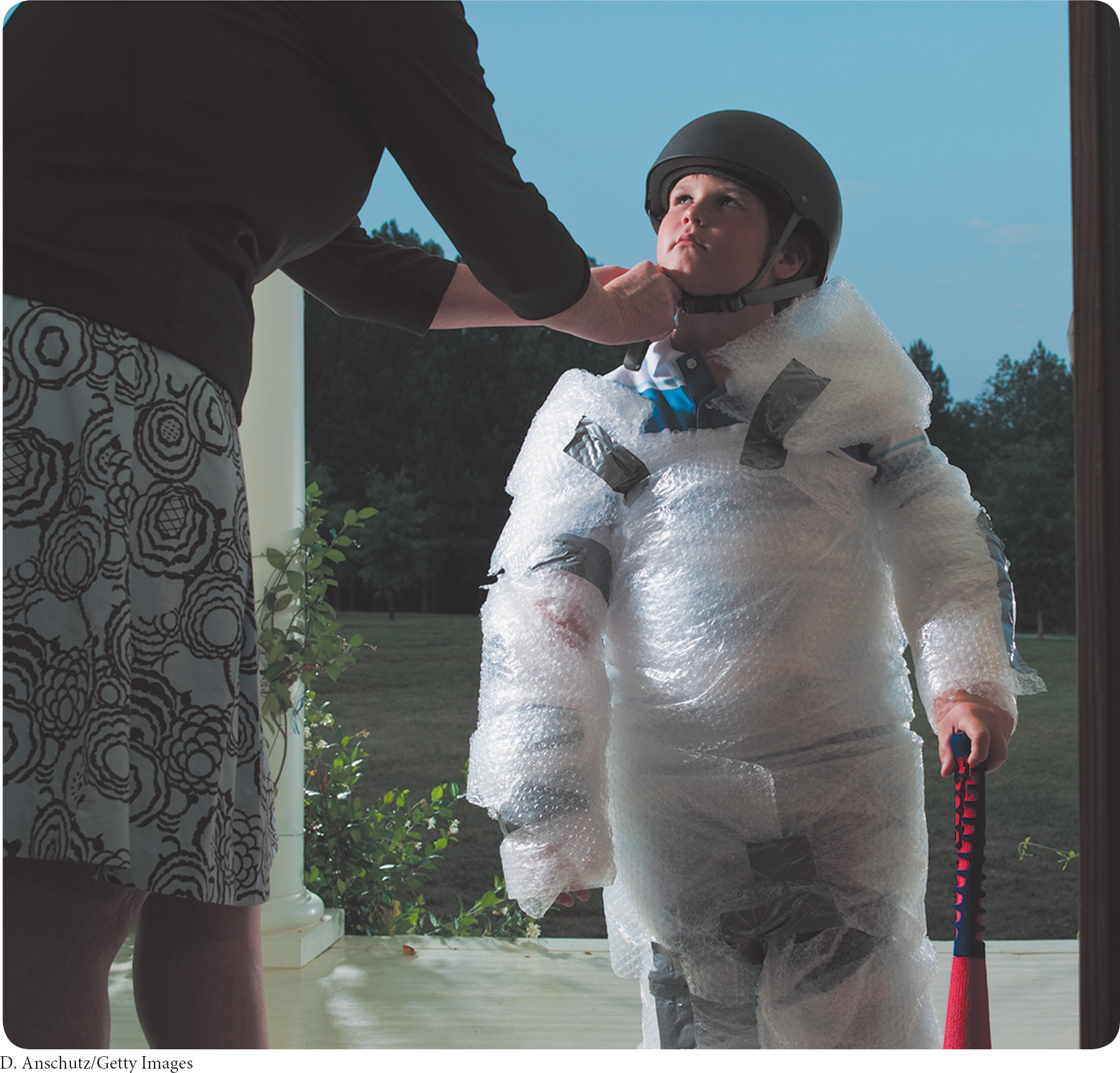See the additional resources for content and reading quizzes for this chapter.
CHAPTER17DEBATE Are Helicopter Parents Ruining Their Children's Lives?

Page 645
First used in 1969 by psychologist Haim Ginott in his book Between Parent and Teenager, the term helicopter parent refers to an overprotective parent who discourages a child’s independence by taking an excessive interest in his or her life. However, the term became popular only recently, when college administrators, teachers, coaches, and others who deal with children and young adults began complaining about parental intrusion into areas that were once off-
The concerns about helicopter parenting extend well beyond early childhood. Educators tell anecdotes of parents doing everything from writing their children’s college admission essays to contacting professors when their children get poor grades. Students themselves report contacting their parents many times a day, relying on them financially, and seeking advice on even the smallest decisions. Even prospective employers report getting calls from nervous parents who want to make sure that their children get the job for which they are applying. One employer even tells about having an employee’s parents show up at her office to see what they could do about their adult child’s poor performance assessment.
In “Raising Successful Children”, psychologist Madeline Levine argues that although parents mean well by trying to protect their children from harm and failure, “[t]he happiest, most successful children have parents who do not do for them what they are capable of doing” (p. 650). Fairly or unfairly, helicopter parenting has been blamed for ruined childhoods, lack of social connections, depression, anxiety, low self-
Helicopter parenting is not without its supporters, however. In “For Some, Helicopter Parenting Delivers Benefits”, Don Aucoin points out that helicopter parenting is not the same as overparenting. He claims that the current generation faces more emotional, social, sexual, and financial challenges than ever before, and that it is no wonder young adults rely more heavily on help from their parents. In other words, parents who provide this support should be praised for helping their children survive in an increasingly complicated and challenging world.
Page 646